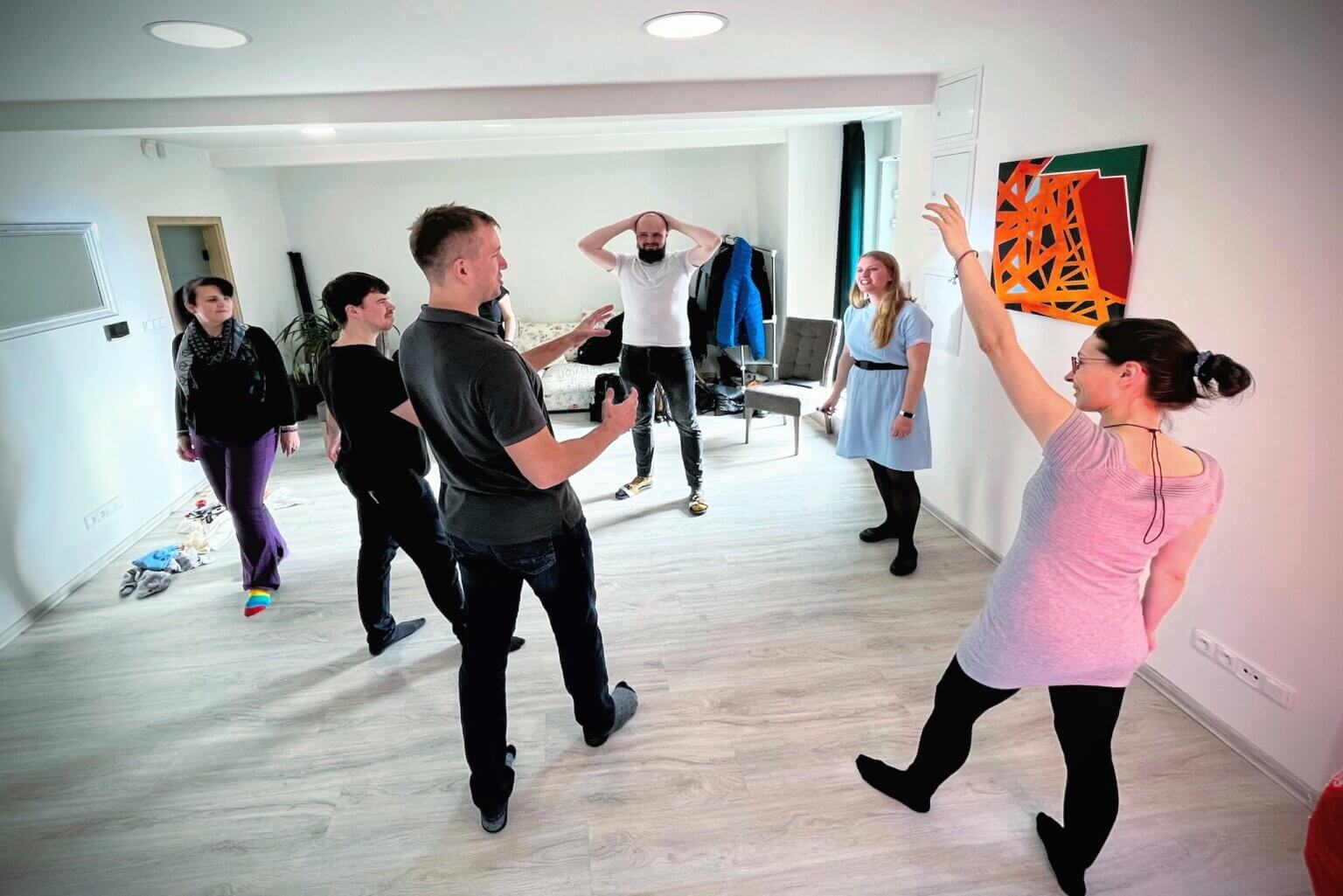9:00 — 10:00 — Improvisation as an Agile Thinking Tool — How do improvisational principles help in agile leadership? -- How do you maintain flexibility when schedules collapse? Why is adaptability more important than perfect strategy?
10:00 — 11:00 — Active listening as the basis of effective leadership — “Listen and verify” — how to avoid communication distortions? — How do I really understand what the team is telling me? — How to work with non-verbal communication
11:00 — 12:00 — Accepting reality and error as a natural part of the process — How to get rid of the fear of mistakes and begin to perceive them as a source of learning? — How to create an environment where it is safe to experiment? — “Yes, and...” — how to be an active mover and not just passively react to situations?
12:00 — 13:00 — Lunch break
13:00 — 14:30 — Reaction to the current change here and now — How not to get trapped in frustration from things past and paralysis from possible undesirable future scenarios? — How to keep a clear mind and focus on what can be influenced? — Techniques for effective response to rapidly changing situations.
14:30 — 15:10 — Confidence in intuition and strength in difference — How to make decisions when complete information is not available? — Intuition as a key tool of the leader. — Diversity in the team as an advantage, not a hindrance.
15:10 — 16:15 — Authenticity of speech — How to maintain personal values even in a challenging environment? Why does authenticity build trust and respect? — How to give and receive feedback with respect?
16:15 — 17:00 — Conclusion and summary — Anchoring the acquired knowledge in a personal setting. — Key principles that you take away. — Reflection and room for questions.




